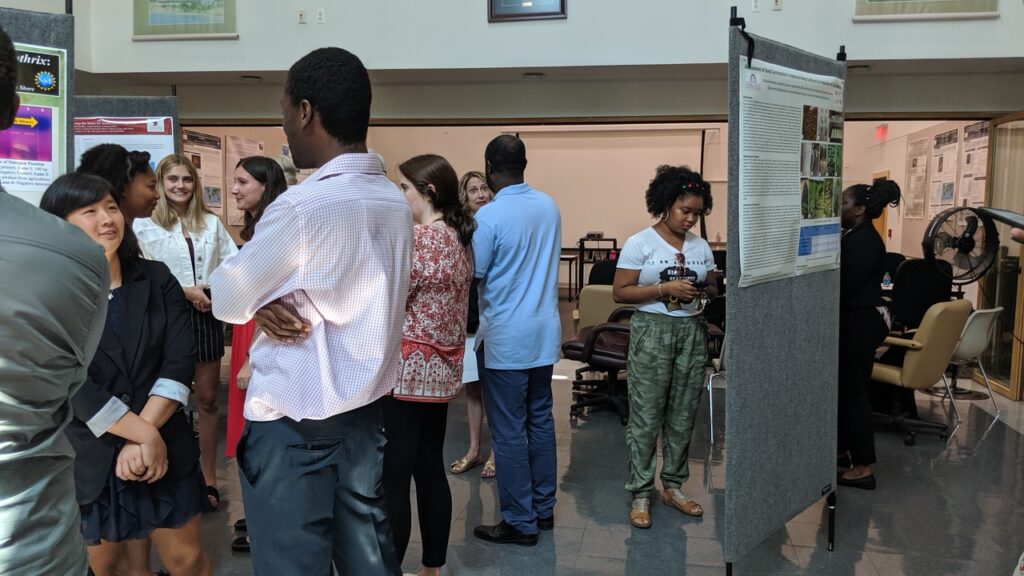
A summer research symposium provided the perfect ending to several weeks-long summer camps on Tuesday, August 8, at the Paul S. Sarbanes Coastal Ecology Center in Berlin, Md. A joint effort between the Research Experience for Undergraduates (REU) and Louis Stokes Alliance for Minority Participation (LSAMP) summer programs, a total of 11 students gave oral research presentations and 19 students gave poster presentations. Both programs are funded by the National Science Foundation. Three of the 19 were Project SEED students, a first since the inception of the summer symposium. The Project SEED program at UMES is coordinated by Dr. Victoria Volkis, associate professor of chemistry, and funded by the American Cancer Society.
“The REU Program at UMES has been holding an annual symposium since its inception in 2009,” said Dr. Margaret Sexton, assistant director of the NOAA Living Marine Resources Cooperative Science Center (LMRCSC), research assistant professor and REU program coordinator. “It provides our interns an opportunity to present their research in order to inform the UMES Environmental Science community about their results and to practice making professional oral and poster presentations. In 2017, interns from the LSAMP program joined the symposium and this year, we were also pleased to welcome three high school students from Project Seed who contributed posters to the symposium.”
Sexton provide the welcome for the event along with Dr. Tracy Bell, assistant professor of biology and LSAMP coordinator. Another highlight of the symposium were the remarks provided by Dr. Nancy Niemi, UMES provost, and the closing remarks offered by Dr. Paulinus Chigbu, director of the NOAA Living Marine Resources Cooperative Science Center and REU program director.
“When students are engaged in meaningful summer research experiences,” said Bell, “it increases their scientific efficacy. For some of these students this was their first time presenting, so the symposium provided them with an opportunity to strengthen their communication skills and get a sense of what it may be like to present at larger conferences. Overall, the students were left with a sense of STEM identity and confidence in becoming a scientist.”
By all accounts, students listened intently to peer presentations and asked meaningful questions.

